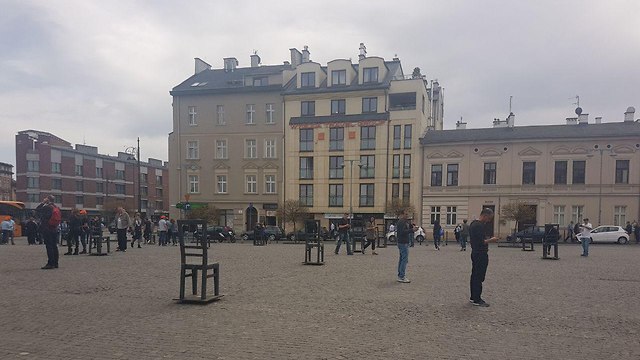
Trump signs Holocaust property law that has angered Poland
The White House said on Wednesday that Trump signed the Justice for Uncompensated Survivors Today—or JUST—Act. It requires the State Department to report to Congress on what steps dozens of countries in Europe have taken to compensate Holocaust survivors or their heirs for assets seized under Nazi German and Communist rule.
The law does not give the US any powers to act against any country and does not single out Poland. But Poland is the only country in Europe that has not passed legislation to compensate former owners for assets seized in the upheavals of 20th-century European history, and Warsaw sees itself as the key target of the law.
The Nazis’ seizure of Jewish-owned property in Poland during World War II, and the murder of most of Poland’s Jewish population, was followed after the war by the Communist state’s seizure of large amounts of property that was nationalized. Most of the original owners of that property were not Jewish.
Since the fall of communism, some claimants have regained lost property on a case-by-case basis through courts, but so far Poland has not passed comprehensive legislation regulating the process, creating a situation that has been riddled by fraud and led to a sense of injustice.
Polish Minister of Foreign Affairs Jacek Czaputowicz says he believes that the US pressure through the JUST Act unfairly sets Jewish claimants above non-Jewish ones, creating tensions within Polish society.
He argued that Polish law treats all Polish citizens equally, whether they are from the Polish majority or from ethnic minorities that made up significant segments of prewar society—including Jews and Ukrainians.
“This position of the (US) Congress is not good because it wants some privileges for the Jews, for the Jewish community, but not for the Poles. I think that the Poles who live in the US may feel hurt by that,” Czaputowicz said in an interview with The Associated Press last week.
He recalled that there were non-Jewish Poles who fought against Nazi Germany and then settled in the United States, leaving behind property that was seized by the Communist regime.
“Their property here remains without any settlement, and nobody speaks on their behalf, only on the behalf of the Jews. That is not good because that divides our society,” Czaputowicz added.
The World Jewish Restitution Organization (WJRO) said Thursday that Czaputowicz was wrong in describing the JUST Act as discriminatory, saying that it covers “both Holocaust victims and other victims of Nazi persecution.”
WJRO Chair of Operations Gideon Taylor also argued that legislation that the Polish ruling party presented last year promising some compensation to some victims “would have had the effect of excluding the vast majority of Holocaust survivors and their families.”
The legislation is currently being re-written.
“In Poland, WJRO has long advocated for the passage of legislation that would provide restitution to all property owners whose property was wrongfully taken—both Jewish and non-Jewish owners,” Gideon said.

